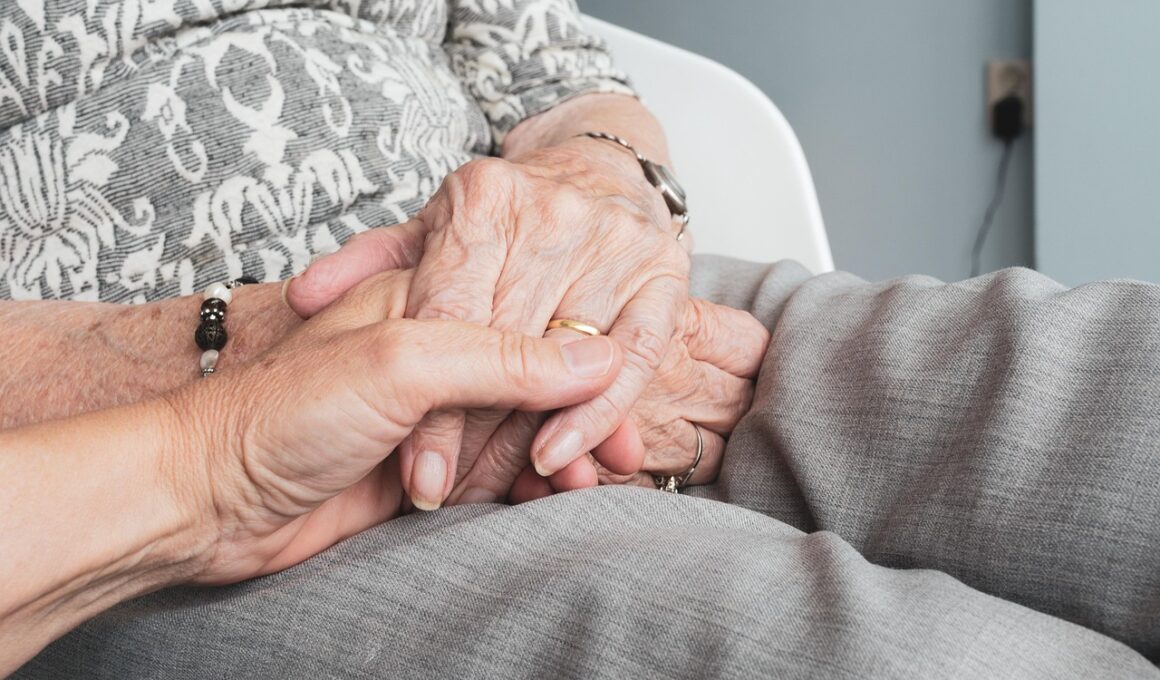The Importance of Social Support in Senior Fitness Challenges
Engaging in fitness challenges is crucial for seniors aiming to improve their overall health. One of the most significant factors that contribute to success in these challenges is the element of social support. Friends, family members, and support groups provide encouragement, motivation, and accountability, which are vital for maintaining consistency in exercise routines. Social interaction reduces feelings of isolation and loneliness, ultimately enhancing emotional well-being. Moreover, studies have shown that seniors with strong social networks are more likely to adhere to fitness programs, leading to better health outcomes. Engaging in social fitness activities can also foster friendships and camaraderie, transforming a solitary workout session into an enjoyable group experience. This interaction encourages participation and can lead to improved outcomes in physical abilities and mental health. Setting collective goals and celebrating achievements together promotes a sense of belonging, making exercise less of a chore and more of a fun and engaging activity. Plus, working with peers can introduce healthy competition, sparking motivation and pushing seniors to achieve their fitness aspirations. Overall, social support is a cornerstone of successful fitness endeavors among senior populations.
Incorporating fitness challenges that engage seniors socially can greatly enhance their experiences. Whether through group classes, community events, or workout buddy systems, creating opportunities for seniors to connect while exercising is essential. Group classes can focus on specific activities such as gentle aerobics, yoga, or strength training sessions tailored to their abilities and needs. These classes not only encourage participation but also foster friendships and provide a supportive atmosphere for learning new skills. Such interactive environments reduce barriers to entry and help seniors feel more comfortable and confident in participating in physical activities. Additionally, community events like walking clubs or senior sports days offer platforms for socializing while engaging in physical exercise. Participants have the chance to meet people with similar interests, share experiences, and even learn from one another. With increased social support, seniors often push each other to achieve their fitness goals, leading to a greater sense of accomplishment. This support network can be pivotal in overcoming obstacles, whether they are physical, emotional, or logistical. Thus, designing fitness programs that emphasize socialization significantly boosts the effectiveness of physical challenges for seniors.
The Role of Community in Senior Fitness
Communities play a substantial role in promoting social support for senior fitness challenges. Local organizations, clubs, and community centers often create programs catered specifically to older adults, providing them with resources and opportunities to stay active. For instance, many libraries and community centers host exercise classes, workshops, and informational sessions on healthy living, which empower seniors to participate actively. The availability of transportation services to these events can make a difference, as it enables the attendance of seniors who may not otherwise engage in activities. By creating inclusive environments, communities ensure that seniors feel welcomed and motivated to participate. In addition, forming partnerships with local fitness trainers can enhance the quality and variety of programs available for seniors. These partnerships not only introduce newer fitness concepts but also ensure professional guidance, leading to safer and effective workout experiences in communal settings. Another benefit is the potential for community-wide challenges that inspire collective participation among seniors, allowing them to strive toward common goals. Ultimately, the involvement of local organizations offers essential support, fostering a culture of health and wellness amongst the aging population.
Encouraging seniors to form or join exercise groups can lead to remarkable changes in their fitness levels and social interactions. These groups offer companionship and provide a safe space where seniors can share their struggles and successes in fitness endeavors. Being in the company of others facing similar challenges can greatly alleviate feelings of anxiety and intimidation associated with fitness activities. In a group setting, participants can exchange tips, share stories, and motivate one another, transforming exercise into a more enjoyable and less daunting experience. Furthermore, regular meetings and planned workouts help establish accountability. When seniors know that others are counting on them to show up, they are more likely to commit to their fitness routines. Additionally, engaging in fitness challenges together enhances bonding and friendship development, creating lifelong connections. For many seniors, these groups also serve as a source of joy and connection beyond just fitness. The friendships formed can lead to social outings and gatherings, reinforcing the social fabric that is especially important for older adults. Thus, exercise groups are not only about physical health but also about nurturing emotional well-being through strong social ties.
Barriers to Participation in Fitness Challenges
While the benefits of social support in fitness challenges for seniors are clear, various barriers can hinder their involvement. Issues such as mobility limitations, health concerns, and transportation challenges often create obstacles for elderly individuals seeking to participate in fitness programs. For instance, some seniors may avoid exercise due to fear of injury or lack of confidence in their physical capabilities. Addressing these concerns requires creating accessible fitness options tailored specifically for older adults, such as low-impact exercise classes that cater to different fitness levels. It’s also important to provide proper education regarding the safety and adaptability of exercises. Moreover, incorporating flexible scheduling can engage more participants by accommodating their availability. Offering multiple sessions and activities throughout the week ensures that everyone has an opportunity to take part in fitness challenges. Additionally, building programs that emphasize social connections, such as buddy systems or group challenges, can motivate seniors despite hesitations. By recognizing and addressing these barriers, fitness programs can be adapted to meet the specific needs of seniors, allowing them to benefit from social support and engage in challenges that enhance their well-being.
Effective communication is essential in fostering a supportive environment for seniors engaged in fitness. Clearly conveying the benefits of social support in fitness challenges helps seniors understand how valuable it can be. Regular updates, reminders, and educational resources can enhance awareness around available support options and program details. Utilizing various communication platforms, such as newsletters, social media groups, or community bulletin boards, can reach a broad audience, ensuring everyone remains informed. Moreover, feedback channels can empower seniors to express their concerns or suggestions regarding programs. This mutual understanding and dialogue can help organizers tailor their offerings, ensuring they resonate well with the participants’ needs. When seniors see that their contributions are valued, they are more likely to stay engaged and involved. Additionally, storytelling about participants’ successes can inspire others within the community. Highlighting these narratives boosts morale and demonstrates the tangible benefits of social support in fitness settings. By creating open lines of communication and fostering an environment of inclusion, seniors will feel more connected and motivated to pursue their fitness challenges with a supportive network by their side.
Conclusion: Emphasizing Social Connections
In conclusion, the importance of social support in senior fitness challenges cannot be overstated. Fostering relationships through community engagement, shared experiences, and collaborative programs significantly enhances not only fitness but also well-being among seniors. The social aspect of fitness challenges encourages higher participation rates, improved motivation, and better adherence to exercise routines. Building robust support networks allows seniors to confront challenges together, pushing each other toward their wellness goals. Furthermore, as seniors share their journeys, they contribute to a culture of mutual encouragement and understanding. Developing fitness programs that prioritize social connections can lead to greater satisfaction and overall mental health improvements. Thereby, communities and organizations need to prioritize initiatives that create opportunities for social interactions, ensuring that seniors feel empowered and motivated in their fitness pursuits. As we emphasize the need for social support, we positively impact the fitness landscape for seniors. Ultimately, encouragement, friendship, and shared experiences foster a healthier, more active lifestyle that enriches the lives of older adults. Together, by working as a cohesive community, we can inspire seniors to thrive through effective and enjoyable fitness challenges.
To help enhance the impact of social support in fitness, families can also play a pivotal role in encouraging seniors to stay active. By participating in fitness activities together, family members can provide the motivation that seniors need. Shared walks, home workouts, or family game nights featuring physical activity create opportunities for bonding and well-being. Emphasizing the importance of maintaining an active lifestyle can also lead to conversations about health and fitness goals, ensuring that seniors receive the encouragement they need. Family support can also extend to attendance at community events, where seniors may feel encouraged by having loved ones cheering them on. Being able to celebrate progress and accomplishments with family make for memorable experiences, reinforcing positive behavior regarding fitness participation. Moreover, families can assist in overcoming barriers by providing transportation or helping create exercise environments at home, thus making it easier for seniors to incorporate physical activity into their daily routines. With the backing of family, seniors can feel more confident and inspired to pursue their fitness goals. This involvement further illustrates the importance of social support, showcasing how families significantly contribute to the motivation and well-being of older adults in their fitness challenges.


